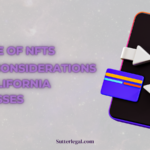Table of Contents
- FEDERAL NON-PROFIT CORPORATIONS AND TAX EXEMPTION
- WHAT IS NECESSARY TO SUBMIT FORM 1023
- Form 1023 includes the following sections:
- ANNUAL REPORT TO MAINTAIN EXEMPTION FROM INCOME TAX
FEDERAL NON-PROFIT CORPORATIONS AND TAX EXEMPTION
As a San Francisco Business Law Firm we advise companies on how the set up as a Non-Profit Corporation.
The steps required to obtain federal tax exemption status as a nonprofit (501(c)(3) status) are complex and may be difficult to complete without an Attorney’s assistance.
In order to obtain federal tax exemption status the following steps must be completed.
- Have your attorney file a nonprofit Article of Incorporation with the California secretary of state office in every state your nonprofit intends to operate.
- Your law firm will help you obtain an Employer Identification Number from the IRS
- Your lawyer will then submit Form 1023 or 1023-EZ to the IRS. This form is also known as the Application for Recognition of Exemption.
WHAT IS NECESSARY TO SUBMIT FORM 1023
Form 1023 highlights a nonprofit’s history, activities, finances, and organization. Smaller charities may qualify to submit a shorter form, 1023-EZ.
The most general qualifications for submitting Form 1023-EZ are financial. If your nonprofit earned gross receipts of more than $50,000 in any of the past three years or expects to earn more than $50,000 in the next three years, it won’t qualify.
Likewise, you can’t submit Form 1023-EZ if your nonprofit’s total assets exceed $250,000. Form 1023-EZ only contains 6 sections, while Form 1023 contains 11 sections.
Form 1023 includes the following sections:
- Identification of Applicant,
- Organization Structure,
- Affirm that your formation documents contain a purpose clause and dissolution clause satisfying the requirements of section 501(c)(3) and using the specific language provided by the IRS.
- Narrative description of the nonprofit’s activities, which includes telling the nonprofit’s story and predicting its future.
- Provide details about the financial arrangements internal to your nonprofit.
- Explain the services your nonprofit provides and to whom you provide them, including individuals, organizations, and members of your nonprofit. You’ll also need to describe any business or family relationships between individuals benefiting from your services and individuals serving as officers, directors, trustees, or highly compensated employees.
- Identify if your nonprofit is taking over another organization’s activities, if you’re taking over 25% of another organization’s assets, or if you were formed by a formerly for-profit organization changing to nonprofit status.
- Answer questions about political activities, gaming activities, fundraising, connections with other organizations (including foreign organizations), and a host of other activities.
- Provide detailed financial information about the nonprofit, but different information is required depending on how long the nonprofit has been around.
- Operating for five years or more: provide financial information about the most recent completed tax year and the three immediately preceding years.
- Operated for more than one but less than five years: provide information for every completed year of operation, an estimate for the current year, and an estimate for future years adding up to a total of four years.
- Operated for less than one year: provide projected estimates for the current year and the next two years for a total of three years.
- Classify the nonprofit as a public charity or private foundation.
- The fee for filing Form 1023 is $600, including the check among the documents attached to the application. An authorized official needs to sign and date the form.
ANNUAL REPORT TO MAINTAIN EXEMPTION FROM INCOME TAX
Nonprofits that have 501(c)(3) tax exemption status do not pay federal taxes, but they still have to have their attorney file their nonprofit’s Form 990 or Form 990-N for nonprofit organizations.
Filing this form ensures that nonprofits conduct their charity business in a way that is compliant with their public, and nonprofit responsibilities.
In addition, this form gives the IRS an overview of your activities throughout the last fiscal year. It also helps donors understand how your nonprofit organization operates and is managed.
The 990 return is due on the 15th day of the 5th month after the end of the organization’s fiscal year.
If you are thinking of setting up a non-profit Corporation, please reach out to an experienced California attorney to address your questions. To set up an appointment call or email.






